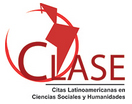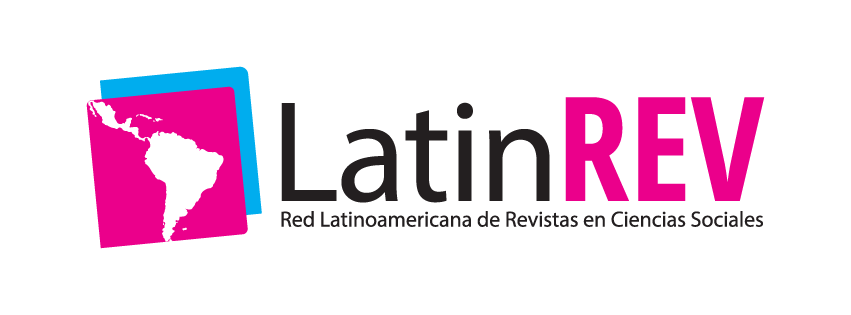About the Journal
Focus and Scope
DILEMAS - Revista de Estudos de Conflito e Controle Social publishes in a continuous flow original and previously unpublished scientific contributions, preferably based on empiric research, in the form of articles, reviews and interviews in the social sciences (with priority for sociology and anthropology). Its mission is to promote scientific development and discussion of ideas in the field of studies of conflicts and social control in the social sciences, such as:
- Deviant behaviors
- Violences
- Criminality
- Morality
- Social movements and collective action
- Urban conflicts
- Criminal justice
- Public safety
- Public and private institutions for social control
The target public is composed of readers at a university level in general, especially those in the human sciences and mainly students and specialists in the fields of criminology, sociologies of crime, violence, institutions, and social control; anthropologies of law, violence and urban conflicts; and related fields.
DILEMAS publishes articles, reviews, interviews, lectures, traductions, dossiers and special issues. The texts will be published in Portuguese, except for articles that are originally written in Spanish, English or French, which will be published in the original language, with abstracts in this language, and in Portuguese and English. The contributions should be appropriate to an academic publication with a non-normative content and use the language and approach typical to this medium. Regular articles, articles from dossiers and special issues will undergo a double-blind review.
DILEMAS does not charge a fee for the submission and processing of articles and other texts (APCs - article processing charges).
Peer Review Process
All submissions will be initially evaluated by the Editorial Commission to decide their pertinence to the editorial line of DILEMAS. Once accepted, they will be submitted to independent reviewers, and the authors and reviewers will remain anonymous. Each article will always be submitted to at least two evaluations. In case of controversy, the article will be sent to a third reviewer. If the controversy persists, the article will be evaluated by the Editorial Commission and the final decision can be made by the editor. All authors will receive the reviews of their articles, with the comments made by the reviewers and by the Editorial Commission, when applicable, or by the editors of DILEMAS. Publication is dependent on approval by the reviewers. The estimated time for approval and publication averages from 6 (six) months to one year.
DILEMAS considers as unpublished and accepts submissions of manuscripts published in annals of scientific events or on preprint platforms (pre-printed) indicated by DILEMAS. In such cases, there is no need to leave the text anonymous. Articles published by DILEMAS that remain accessible on preprint servers must indicate the link to the version published in DILEMAS. In all these cases, when assessing preprints, they must indicate their location (link, DOI, etc.) and will be submitted to reviewers who will have knowledge of the identity of their author/authors. DILEMAS will accept preprints from servers authenticated by DILEMAS. The server currently authenticated by DILEMAS is the Scielo Preprints collection, operated by the Open Preprint System (OPS) platform: https://pkp.sfu.ca/ops/ .
DILEMAS embraces the international Open Science program and has been introducing changes in its editorial norms to improve them in this direction. Thus, articles approved and based on research with quantitative and qualitative data that can be made available to the public must be accompanied by their respective consolidated databases or inform the public access link to that file in the banks where they are deposited. All microdata relating to persons and human identities must be completely anonymous, in order to protect the confidentiality of information. In the case of statistical-based banks, code dictionaries (scripts, algorithms, etc.) must be sent to DILEMAS, if any, with a detailed description of the variables present and the code file used for complete replication of graphs, tables and analyzes. If the bank has been aggregated or transformed, the steps for such processing must also be explained from the original bank. Databases and codes must be provided in a format that allows access and replication in at least one of the main statistical tools, such as R, Python, SPSS, Stata and Excel. The code for replication must be commented on extensively, clearly and objectively. Banks and codes will be made available on the magazine's page on its portal at www.necvu.ifcs.ufrj.
Although DILEMAS does not yet adopt open peer review, in attention to the need for impartiality in this process, we adopt the gradual opening of some data, such as information on the responsible section editor, whose name will be published in each article.
Publication Frequency
DILEMAS was trimestral from 2008 until 2015. Beginning in 2016 three issues have been published each year. N.1 (JAN/FEB/MAR/APR); N.2 (MAY/JUNE/JULY/AUG); N.3 (SEPT/OCT/NOV/DEC). In the case of accepted articles, in order to ensure the shortest time possible between approval and publication, DILEMAS has adopted since 2023 the continuous publication format. In addition to the regular issues, DILEMAS also publishes special thematic editions, numbered separately, which respect the same criteria as the regular editions. DILEMAS will be published until the 30th of the first month of the issue.
Ethics Statement
DILEMAS’ editorial commission will examine each proposed article to foresee and avoid violations of the scientific code of ethics and the good scientific editorial practices adopted by the magazine. If necessary, authors, reviewers and editors will be requested to present suitable documentation and clarifications that it considers to be necessary. Failure to do so could lead to rejection of the submission.
DILEMAS follows the code of ethics accepted and practiced by the Brazilian scientific community, established in various documents of The Brazilian Society for the Advancement of Science (SBPC) and by the Ethics Commissions at UFRJ. Submissions will not be accepted for publication and may be subject to legal procedures if bad faith and improper use of the copyright is determined, if they include plagiarism or if there are conflicts of interest among reviewers and authors. The acceptance of each proposal and of each evaluation submitted is conditioned on these requirements, whose main criteria are addressed in the following items.
Plagiarism and Editorial Misconduct
To verify the similarity of content, DILEMAS uses the software CopySpyder. It will proceed to evaluate articles that have a margin of coincidence up to 3%. Plagiarism is not accepted. Texts that are copied will be identified and the work will be returned to the authors with the problems identified, for them to explain the situation. We also have reviewers who at the time of the double-blind evaluation notify the editorial staff of any substantial similarity between the manuscript in question and previously published articles or those simultaneously submitted to other journals, as well as other information considered pertinent.
To ensure the editorial ethics of the studies submitted and published, DILEMAS is guided by the SciELO's Guide to good practices for the strengthening of ethics in scientific publishing (September 2018 version).
Conflict of Interests
Conflicts of interest may arise when authors, reviewers or editors have interests that, whether apparent or not, can influence the preparation or evaluation of the manuscripts. Conflicts of interest can be of a professional, financial, intellectual, political or religious nature.
To maintain the impartiality of the editorial process, the authors should communicate to the secretariat of DILEMAS in case of any relationship they may have with any public or private entity that could generate a conflict of interest. They should also report on any type of financial support or connections of any other nature that may have influenced the execution of the research and the drafting of the manuscript presented here.
If the authors are not certain about what may constitute a potential ethical problem, especially in terms of conflicts of interest, they should contact the secretariat of DILEMAS for clarification. If they do not, they assume complete responsibility for any legal proceedings.
Fees Policy
DILEMAS does not charge a fee for the submission and processing of articles and other texts (APCs - article processing charges).
Free Access Policy
DILEMAS offers immediate free access to its content, following the principle that making scientific knowledge available to the public free of charge provides greater democratization of knowledge.
Sponsors
Núcleo de Estudos da Cidadania, Conflito e Violência Urbana – NECVU/UFRJ
Programa de Pós-Graduação em Sociologia e Antropologia – PPGSA/UFRJ
.jpg)


